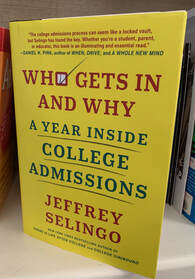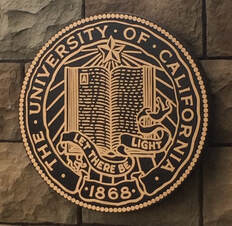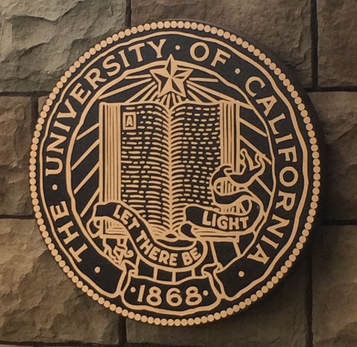 Jeffrey Selingo’s newly released college admission book Who Gets in and Why is a must read for anyone wanting the inside scoop on SELECTIVE college admissions. Selective colleges are the ones that many students and parents, especially in higher income areas, tend to focus on. While these selective colleges often get the majority of attention, they actually make up less than 10% of all universities. That means that about 90% of colleges are relatively accessible, especially for a high achieving student. Selingo puts colleges into two categories, which he calls Buyers and Sellers. Sellers are the selective schools. They are the “name brand” schools. Students come to them. They don’t have to advertise or offer scholarships/discounts to entice students. They are the schools with the single and teen digit admissions rates, the ones many parents are willing to borrow loads of money to pay for, and the ones that leave many high achieving students heartbroken every year. Buyers, on the other hand, often offer incentives for students to apply including tuition discounts, special programs, unique mentorship and research opportunities, free application fees and more. Students should always have some buyers on their list to increase their options. And if students are planning to only apply to buyers, they don’t need to read Selingo’s book. But for strong students--those who have taken rigorous courses, have a GPA over a 4.0, earned strong test scores, and have engaged in exceptional extracurricular activities that show leadership, innovation and/or a talent, then Selingo’s book gives them (and their parents) unique insight into a world that is often so secretive: the inside of an admissions office during application season. Some Key Takeaways:
Overall Thoughts My takeaways are just a sliver of the insights and tips Selingo offers. And while he gives readers a good sense of what it takes for students to be successful when applying selective schools, he also emphasizes the unpredictability of college admissions. While a student can check off every box he emphasizes, there are ultimately no guarantees. It’s another reminder for students to have a balanced list of colleges, or as Selingo would say, to include some buyers and not all sellers.  The University of California just announced several changes to admissions requirements due to these extraordinary circumstances. Most notably are that ACT/SAT tests will not be required for the class of 2021 and that grades are not required for this semester (spring semester 2020) to meet A-G requirements. See the full update below. What's not clear is how they will now evaluate/compare applicants and how students who submit tests will be compared with those who don't. Remember, the selective UC campuses get well over 100k applicants for just 10k or so spots. What's clear to me is for this year's junior class, those AP/rigorous classes and GPA become even more important, and last semester's grades will hold much weight. I don't recommend students take this as an invitation to slack off during online schooling. While students will not be held accountable if their high schools move to pass/fail grading for classes this semester or if their grades slip, students who thrive during this pandemic can only have an advantage in the admissions process. It will showcase their grit and perseverance. Also, the UCs require 4 essays, so those extracurricular activities, leadership, community service, talent, etc. are going to hold more weight now than ever. Click here to read the official UC Press Release. Click here to access the UC's FAQ Official Counselor Update As measures to combat COVID-19 have closed schools, cancelled standardized tests and upended nearly every aspect of students’ education, students and their families are understandably worried about whether those changes will hurt their college prospects. The University of California has taken steps to ensure that students can strive for and attain a world-class UC education, despite disruptions caused by the COVID-19 pandemic. On Tuesday, March 31, the university announced that it has temporarily relaxed its admissions standards for both newly admitted students and prospective high school and community college students to account for changes in instruction methods, grading and administration of standardized tests. UC campuses will provide maximum flexibility to students who need more time to meet registration, deposit and transcript deadlines. The university also expects to work with students to adjust financial aid packages if family financial circumstances have suddenly changed. To serve students and their families during this crisis, UC has enacted the following temporary measures, which are explained in detail in an online FAQ.
For more information, please see the press release and the Undergraduate Admissions COVID-19 page. Campus InsightsUC Berkeley continues to be one of the most selective UCs with a 16.8% admit rate, but it did admit more students off its waitlist than in years past. Notable programs include the 3+2 Engineering program, Management, Entrepreneurship, and Technology degree in the Engineering College, Global Management Program, and a Dual Degree Program with either a Hong Kong or French university. UC Davis continues to be a go-to university for students interested in the biological and natural sciences. It just received $845 million dollars in research funding and offers some great scholarships for first generation students. UC Irvine now has four different psychology majors and a new interactive learning building. It also received the most applications from in-state applicants, and its admit rate dropped to 26.5%, making it the 3rd most selective UC school. UCLA overenrolled the previous year, which contributed to its 12% admit rate this year, the lowest of all the UCs. 965 were admitted off the waitlist, which is a huge increase over previous years. UC Merced has grown this past year with new buildings including new research labs and housing. With the new space, it was able to increase its admit rate to 72%. Computer science, engineering, and biology are impacted programs. Something to check out is Merced's unique leadership program that takes place in YOSEMITE! UC Riverside admitted the most CA students of any UC school. Its Entomology department is ranked #2 in the WORLD and is a great major to prepare for medical school. Riverside also has two Nobel Laureates (chemistry and physics) who just joined the faculty. UC San Diego is opening a new college (Seventh College) focused on changing the planet, and its sports teams will start competing in Division I in 2020. UC Santa Barbara was the biggest surprise to me last year with an admit rate dropping to 29%. UCSB works to admit from every high school, which could mean those at highly competitive high schools are at a disadvantage. Love their unique first year exploratory programs to help students explore majors where they take mini classes worth less units. UC Santa Cruz admitted a ton of students off the waitlist. Computer science and computer engineering are the only selective majors, and undecided students can join undeclared advising clusters. Application News and InsightsNew on the Application: Students now have 500 characters to describe activities. That doesn’t mean students have to use every character, but it is a nice change. And activities/awards/work experience are no longer broken up into categories. Students can list up to 20, and the order does not matter.
Personal Insight Questions: A reminder that these are questions and NOT essays. More information is better. Unlike the personal statement on the Common App, it’s less about show and not creative writing. SAT/ACT Essay: The UCs are one of institutions still requiring the writing portion of the ACT/SAT, although most campuses said that score does not have much weight in the admissions process. The University of CA is currently reviewing that policy. Look for a recommendation to come out at the end of the year. Verification Process: Just a friendly reminder that each year the UCs take a random sample of applications to confirm accuracy. Students should double check everything this is self reported. Things that could be verified: household income, academic records, roles in extracurricular activities and time spent, awards earned, etc. Gap Years: The UCs do not approve gap years for exploration. Gap Years are only approved for extenuating circumstances, and it’s usually a semester. Majors: All campuses allow students to choose an alternate major except Berkeley and UCLA. For those campuses, students should choose a major in a different college to give them the best chance of admission. General Reminders: Students should NOT send transcripts and ONLY have to send their ACT or SAT score to one campus, and that campus with share with all.  Each year it becomes increasingly disheartening for California high school seniors and their families as the UCs and Cal States become more and more selective. But this year was particularly frustrating. Students with nearly perfect SAT/ACT scores and GPAs well over 4.0 with many AP classes found themselves waitlisted and/or rejected at UCs and Cal States that in years past would have been safety or target schools. Inside Higher Ed Magazine’s recent article “Wait-Listed, Rejected and Frustrated in California” articulates the predicament counselors find themselves in as they guide CA students. I have been telling my students that UCLA, Berkeley, UC San Diego, and UC Irvine are selective, meaning that no matter how strong the students' profile is, I can’t predict their chances. This is a sentiment I imagine most counselors share with their clients. Now I must add UC Davis and UC Santa Barbara to the list, and I can only imagine that UC Santa Cruz and UC Riverside are not far behind. San Diego State, Long Beach State, Cal Poly San Luis Obispo, and Cal State Fullerton top the list of selective Cal State Universities, and if this trend continues, I expect to add more Cal States to that list in coming years. NPR recently produced a podcast titled Thousands of College Hopefuls Could Leave California, and Never Come Back, which looks at the reason for this increased selectivity and the impact it will likely have on CA’s economy. Clearly this problem will only get worse unless CA builds more colleges to sustain its growing population--something I don't see happening anytime soon. As an Independent Educational Consultant, my focus is to help students apply to colleges that best fit their personality, career goals, and financial resources. Many CA students I work with want to stay in their home state, and a challenge I often face is getting those students to recognize the uphill battle they may face in getting into their CA schools of choice. I work to convince them to consider schools outside the state, especially in places like the Midwest, South, and Rocky Mountains that often court strong CA students by offering them substantial merit money that can make the cost of attendance close to or even less than attending a UC. Fortunately, my seniors this year applied to a balanced list of schools meaning they all had at least some safeties and targets on their list. Many applied to schools all across the US, and almost all were accepted into at least one of their top choices. While some of my students received acceptances from selective UCs, Cal States, and CA private schools, several were waitlisted and denied from these same schools. BUT IMPORTANT TO NOTE IS THAT ALL HAD OPTIONS BECAUSE THEY APPLIED STRATEGICALLY. It's crucial to be pragmatic in this unpredictable college landscape. There is no single school that will determine a student's success. I always recommend my seniors and their families read NY Times columnist Frank Bruni's book during this process, a book whose title sums up this sentiment perfectly: Where You Go is Not Who You’ll Be. Students should only include selective schools on their apply list if they accept that these schools are reaches. In today's college landscape they cannot limit their choices to just UCs and Cal States. And perhaps most important is that they heed Bruni's words and believe it's not how they got there but where they end up that matters. This mindset will go a long way in determining their ultimate success. Note: Click on the links above in BLUE to access Inside Higher Ed's Article, NPR's Podcast, and Frank Bruni's book. (Everything in quotation marks is taken directly from the UC Counselor’s Bulletin) Application Submission:
Students can submit their application anytime from November 1 through November 30: “There is no benefit or disadvantage to students who choose to submit their applications earlier or later in the month. Once the application is submitted, however, only limited edits can be made.” "Additional Comments" Sections: “The two additional comments boxes in the application are optional and should not be used as a continuation of a student’s personal insight question responses. Instead, students should use this section to explain anything that may be unclear in other parts of the application. The first additional comments box follows the “Academic History” section and should be used to explain course taking or grade patterns, a circumstance that prevented the student from taking more rigorous courses, or a prolonged illness that affect their grades. The second comment area immediately follows the “personal insight questions” section. Applicants may use this area to explain a learning or physical difference, or other issues related to their academic ability.” Tips: Personal Insight Questions
Click here for the UC’s official Personal Insight page, which includes a short video, as well as many other helpful resources. Question of the Month: “Can other UC campuses see which campuses a student applied to? As the UC admission application system is a UC-wide tool, campuses do have access to see all the campuses to which a student applied. However, this is irrelevant in the campus review and selection process. All campuses review and make decisions on applicants independently. This is true regardless of other campuses or different majors a student selected. All admission decisions are based on each campus' faculty policies for admission selection.” My Tip: Students should apply broadly to give themselves the best chance of being accepted to a UC campus. |
